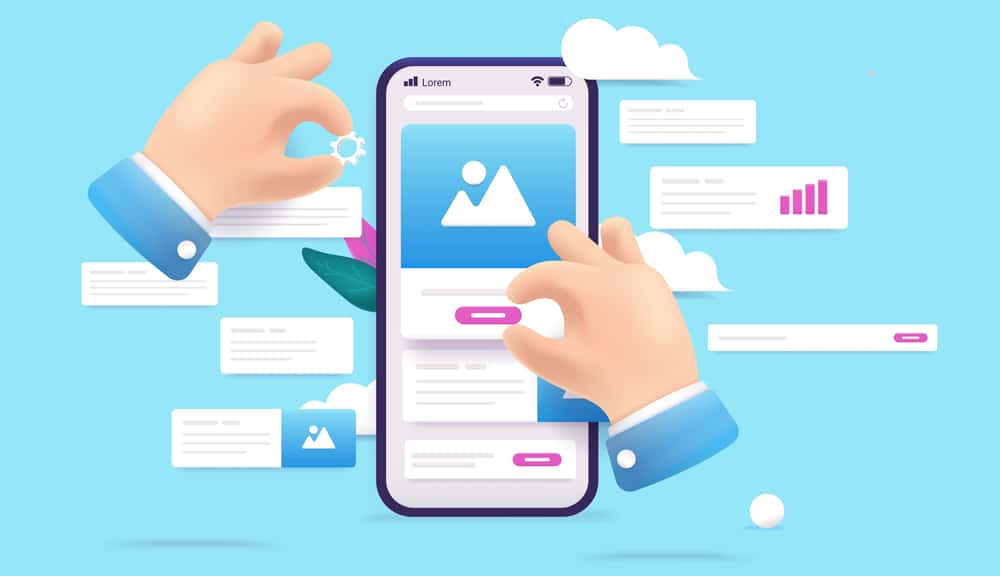Mobile app development is creating software applications that run on mobile devices like smartphones and tablets. In this age of technology, mobile apps are essential to businesses, organizations, and individuals to increase productivity, enhance user experience, and reach wider audiences. As such, mobile app development has become a booming industry with various tools available for developers. This blog post will explore mobile app development tools, their features, and which one to choose for your project.
Introduction to Mobile App Development Tools
Mobile app development tools are software applications that help developers build mobile apps for different operating systems. These tools enable developers to write code, design user interfaces, and test their applications on various devices. Various mobile app development tools include Integrated Development Environments (IDEs), Software Development Kits (SDKs), and Mobile App Platforms. Let’s take a closer look at each of these tools.
Integrated Development Environments (IDEs)
An Integrated Development Environment (IDE) is a software application that offers a complete development environment for mobile app development. IDEs include features like code editors, debugging tools, and compilers, which enable developers to write, test, and debug their code in one place. There are several Integrated Development Environments (IDEs) available for mobile app development, some of the popular ones are:
Android Studio
Android Studio is the official IDE for Android app development. It includes features like code editing, debugging, and testing, making it a popular choice for Android app developers.
Xcode
Xcode is the official IDE for iOS app development. It includes features like Interface Builder, which helps developers design user interfaces visually, and Swift Playgrounds, which allows developers to experiment with code in real time.
Eclipse
Eclipse is an Integrated Development Environment (IDE) that supports various programming languages such as C++, Java, Python, and many more. It provides a range of features like code editing, debugging, testing tools, and support for third-party plugins.
Visual Studio
Visual Studio is a popular IDE for cross-platform mobile app development. It supports multiple programming languages and platforms, including Android, iOS, and Windows.
NetBeans
NetBeans is an Integrated Development Environment (IDE) that supports multiple programming languages, including Java, HTML, and PHP. It provides a range of features like code editing, debugging, testing tools, and support for third-party plugins. NetBeans is an open-source project and is available for free.
Benefits of using IDEs for app development
Streamlined Development Process
IDEs provide a comprehensive environment for app development, which can increase productivity and efficiency.
Debugging and Testing
IDEs provide debugging and testing tools that help developers identify and fix issues in their code.
Language Support
IDEs support multiple programming languages, which can be helpful for developers who work with different languages.
Collaboration
IDEs provide collaboration tools that allow developers to work together on a project.
Software Development Kits (SDKs)
A Software Development Kit (SDK) is a collection of tools, libraries, and documentation developers use to build mobile apps. SDKs provide pre-built components, such as user interface elements and data storage capabilities, which can be easily integrated into an app. Some popular SDKs for mobile app development include:
iOS SDK
The iOS SDK is a collection of tools and resources developers use to create apps for iOS devices. The SDK includes Xcode, the Integrated Development Environment (IDE) for iOS app development, and APIs for creating user interfaces, accessing device hardware, and connecting to external services.
Android SDK
The Android SDK is a collection of tools and resources developers use to create apps for Android devices. The SDK includes Android Studio, the Integrated Development Environment (IDE) for Android app development, and APIs for creating user interfaces, accessing device hardware, and connecting to external services.
Windows SDK
The Windows SDK is a collection of tools and resources developers use to create apps for Windows devices. The SDK includes Visual Studio, the Integrated Development Environment (IDE) for Windows app development, and APIs for creating user interfaces, accessing device hardware, and connecting to external services.
React Native
React Native is an open-source mobile app development framework that leverages JavaScript and the React library to construct native applications that can run on iOS and Android devices. React Native provides APIs allowing developers to access native device functionality and build high-performance apps.
Flutter
Flutter is an open-source mobile app development framework using Dart programming language to create high-performance and natively compiled apps for Android and iOS platforms. Flutter provides APIs allowing developers to access native device functionality and build high-performance apps with a single codebase.
Recommended Reading: Flutter vs Ionic
Firebase
Firebase is a mobile app development platform from Google that provides a range of SDKs and tools for building high-quality apps. It includes features like a real-time database, cloud storage, and authentication, making it a popular choice for developers.
Facebook SDK
The Facebook SDK provides various tools and components for building social features into mobile apps. It includes features like login, sharing, and analytics, making it a popular choice for social app developers.
Amazon Web Services (AWS) SDK
The AWS SDK provides various tools and services for building scalable and secure mobile apps. It includes features like cloud storage, messaging, and analytics, making it a popular choice for developers building enterprise-grade apps.
Benefits of using SDKs for app development
Platform-specific Features
SDKs provide access to platform-specific features and functionality that can help developers create high-performance apps.
Streamlined Development Process
SDKs provide a set of APIs and resources that can simplify the app development process and increase productivity.
Cross-Platform Development
Some SDKs, like React Native and Flutter, allow developers to create apps for multiple platforms using a single codebase.
Community Support
SDKs often have a large and active community of developers who provide support, share resources, and contribute to the development of the SDK.
Mobile App Platforms
A Mobile App Platform is a cloud-based software platform that provides various tools and services for building and managing mobile apps. Mobile app platforms enable developers to build apps without infrastructure and maintenance. Some popular mobile app platforms include:
Microsoft Power Apps
Microsoft Power Apps is a development platform that follows the low-code approach, enabling developers to create bespoke business applications that can be used on mobile and web platforms. Power Apps offers a drag-and-drop interface that allows developers to create apps without writing code. Power Apps integrates with several Microsoft services, including Azure, Dynamics 365, and SharePoint.
Salesforce App Cloud
Salesforce App Cloud is a platform for building custom enterprise applications for web and mobile devices. App Cloud provides tools and resources for building, testing, and deploying apps. App Cloud includes services for database, security, analytics, and collaboration. App Cloud integrates with several Salesforce products, including Sales Cloud, Service Cloud, and Marketing Cloud.
BuildFire
BuildFire is a mobile app platform that enables developers to build and launch mobile apps without coding. It includes features like drag-and-drop design, real-time updates, and analytics, making it a popular choice for small businesses and startups.
Appcelerator
Appcelerator is a mobile app platform that enables developers to build native, cross-platform apps using a single codebase. It includes features like testing, debugging, and cloud services, making it a popular choice for enterprise-grade apps.
Appcelerator Titanium
Appcelerator Titanium is a mobile app development platform that allows developers to create native apps for iOS and Android devices using JavaScript. Titanium provides a set of APIs for accessing native device functionality and integrating with third-party services. Titanium includes features like Alloy, simplifying UI development, and Hyperloop, allowing developers to use native code within their JavaScript codebase.
PhoneGap
PhoneGap is a mobile app development platform enabling developers to create cross-platform applications using web technologies such as CSS, HTML, and JavaScript. It includes features like native device access and cloud services, making it a popular choice for small businesses and startups.
Benefits of using mobile app platforms
Streamlined Development Process
Mobile app platforms provide tools and resources that can simplify the app development process and increase productivity.
Reduced Infrastructure Requirements
Mobile app platforms often provide backend infrastructure and services that can reduce the need for developers to manage their servers and infrastructure.
Cross-Platform Development
Some mobile apps platforms, like Appcelerator Titanium and Firebase, allow developers to create apps for multiple platforms using a single codebase.
Integration with Third-Party Services
Mobile app platforms often provide integrations with popular third-party services, such as social media and analytics services, that can simplify app development and improve app functionality.
Recommended Reading: I have an App Idea
Choosing the Best Mobile App Development Tool
With so many mobile app development tools available, choosing the right one can be challenging. When choosing a mobile app development tool, there are several factors that one should take into consideration. Below are some key factors to keep in mind:
Platform
One of the primary factors that should be considered while choosing a mobile app development tool is the platform for which the app is being developed. It’s worth noting that building an app for Android requires different tools compared to building an app for iOS.
Features
The second factor to consider is the features you need in your app. If you need social features like sharing and commenting, you may want to choose a tool that provides a social SDK.
Budget
The third factor to consider is your budget. Some mobile app development tools are free, while others require a subscription or one-time payment.
Skill level
The fourth factor to consider is your skill level as a developer. Certain tools may be more beginner-friendly compared to others. Hence it is important to choose suitable tools based on one’s experience and skill level.
Frequently Asked Questions (FAQs)
What are mobile app development tools?
What are the best tools to develop mobile apps?
What are the benefits of using mobile app development tools?
What are the primary types of mobile app development tools?
Are mobile app development tools expensive?
What is the market size of mobile app development tools?
What are some popular mobile app development tools for startups?
Final Thoughts
Mobile app development tools are essential for developers building mobile apps. IDEs, SDKs, and mobile app platforms provide a comprehensive environment for building, testing, and launching mobile apps. When choosing a mobile app development tool, consider the platform, features, budget, and skill level. With the right tool and creativity, you can build a high-quality mobile app that will delight your users and help you achieve your goals.



